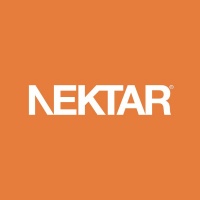 On February 14, Bristol-Myers Squibb (BMS) and Nektar announced the largest-ever deal in history involving a single development-stage drug in a partnership that greatly expands combination testing of BMS’s checkpoint inhibitor Opdivo (nivolumab) and Nektar’s T-cell stimulating molecule NKTR-214.
On February 14, Bristol-Myers Squibb (BMS) and Nektar announced the largest-ever deal in history involving a single development-stage drug in a partnership that greatly expands combination testing of BMS’s checkpoint inhibitor Opdivo (nivolumab) and Nektar’s T-cell stimulating molecule NKTR-214.
Many recent immuno-oncology collaborations have involved cost sharing but no other financial transactions, and the two companies had announced such a relationship for the same two drugs in September 2016. However, the new partnership differs greatly. It is much more comprehensive, greatly expanding the number of cancer indications and tumor types to be explored and addressing the commercialization of any successfully developed uses of the drug combinations. Most noteworthy: The new partnership brings Nektar $1.85 billion in upfront cash and investment, the potential of earning as much as $1.78 billion more as milestones are met, and a split of potential future profits on sales of NKTR-215 that strongly favors Nektar (65% for that company and 35% for BMS).
The new agreement specifies that BMS and Nektar will develop and commercialize NKTR-214 in tandem with Opdivo and Opdivo plus Yervoy (ipilimumab) in more than 20 cancer indications across nine tumor types (the 2016 collaboration specified seven indications and five tumor types). The two companies plan to test the drug combination in 15,000 patients, with the first studies beginning this summer, which could lead to the first registration-supporting data in 18-24 months.
The agreement gives BMS a period of exclusivity for combinations of NKTR-214 and PD-1 inhibitors, although Nektar is free to explore NKTR-214 with other agents whose mechanisms of action don’t overlap with those of the BMS drugs. Nektar already had ongoing studies of NKTR-214 as a single agent or in combination with Genetech’s Tecentriq or Merck’s Keytruda, initiated prior to the agreement.
BMS and Nektar consider their two drugs to be particularly complementary. As a check-point inhibitor, Opdivo works by removing the brakes on T-cells, allowing them to attack tumors. NKTR-214, in contrast, spurs CD4/CD8 T-cell attacks on tumors and raises PD-L1 expression, leading to stronger T-cell attacks. Early results with the combination have been promising, with positive clinical data in skin, kidney, and lung tumors presented to conference attendees at the 2017 Society for Immunotherapy of Cancer (SITC) Annual Meeting in November 2017.
Importantly for BMS, if this early, large bet on a promising agent in a new class of drugs is successful, the combination could drive significant sales for Opdivo — which already totaled about $5 billion in 2017. Moreover, success with NKTR-214 could provide the pathways to maintaining BMS’s leadership in the immuno-oncology arena in the face of increasing IO competition.
Will this help to solidify BMS’s leading position in immuno-oncology? Will it pave the way for other (and potentially richer) deals for early development-stage compounds?